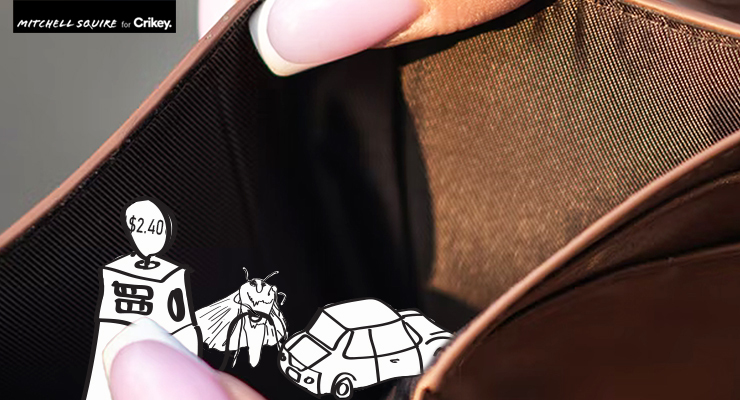
Two months out from an election, the Morrison government faces a serious cost-of-living crisis, with petrol prices spiralling and common household goods becoming more expensive. Fuel is now at $2.20 a litre and tipped to rise to $2.50.
The federal budget is due two weeks from tomorrow and will give Treasurer Josh Frydenberg a chance to reset and find ways to at least symbolically try to alleviate cost-of-living pressures.
But with war in Ukraine pushing up global commodity prices, and the ongoing impacts of the pandemic, economists say the government has few levers left to ease the blow of a crisis largely beyond its control.
What’s causing it
At his address to The Australian Financial Review’s platinum jubilee dinner last week, Frydenberg warned that Australians shouldn’t be naive about the economic costs of opposing Russia’s invasion of Ukraine in the form of higher commodity prices and higher inflation.
“While Australia is better placed than most to withstand these pressures, there will be costs borne by Australians in defending our values,” he said. “For liberal and free nations, this is a price that we must be willing to pay for the right to live free of fear and coercion.”
Asked about high petrol prices on Nine yesterday morning, Prime Minister Scott Morrison said he believed Australians could connect those costs with the situation in Europe.
This isn’t just government spin. In the United States, where petrol prices are also skyrocketing and inflation is at a 40-year high, President Joe Biden has blamed Vladimir Putin for cost-of-living pressures. Last week Reserve Bank governor Philip Lowe warned the Ukraine conflict could send a wave of inflation around the world. UNSW economist Richard Holden says the rise in petrol prices is “100% beyond the government’s control”.
As well as the Ukraine conflict, floods and the effect of COVID could further disrupt supply chains and exacerbate inflationary pressures.
What’s to be done?
The government has strongly hinted at moves to address cost-of-living pressures in the budget, with early talk of extending the low- and middle-income tax offset for another year.
Right now, there’s also a big push to reduce fuel excise, currently at 44.2 cents a litre, coming most prominently from South Australian Premier Steven Marshall, who faces an election on Saturday.
Yesterday Morrison argued that because prices have already risen from $1.70 to $2.20 a litre, more than the value of the excise, reducing it wouldn’t do much.
But Holden says that although reducing or suspending the excise would put some downward pressure on prices, the effect would depend on how much retailers would pass it on to consumers.
Independent economic Saul Eslake meanwhile said reducing the fuel excise would merely be a “sop”.
He says it’s inevitable that we’re going to see a decline in living standards in the near term. The challenge for the government is to ensure that decline doesn’t disproportionately affect lower-income earners who spend a greater proportion of their wages on fuel and groceries.
“The government should concern itself with how the reduction in national living standards is distributed across the population,” he said.
Eslake says this could be achieved through increases to pensions and welfare, but should be done in a budget-neutral manner, for example, through increasing taxes on coal and gas companies who might benefit from higher global commodity prices.
Holden says although the government can’t control prices, raising the tax-free threshold and increasing all welfare payments would be an effective way to alleviate some cost-of-living pain.
Such solutions would conflict with the standard Liberal playbook, and the narrative of moving towards budget consolidation and fiscal responsibility ahead of the election.
But Holden says the government that introduced JobKeeper could still surprise: “To their credit, they’ve shown they’re not ideologues.”








But Holden says the government that introduced JobKeeper could still surprise: “To their credit, they’ve shown they’re not ideologues.” load of cobblers they only ‘introduced’ JobKeeper after it had been suggest by Labor and rejected by the the government
And then designed it so that it would flow into company profits, executive bonuses and dividends.
As if the govt, would increase taxes on fossil fuel companies and then increase pensions and other wefare benefits. In your dreams.
The last thing we need now is the proposed tax cuts for upper income earners.
Not just fuel going up. Cooking oil, metals and minerals, wheat, food, transport, building materials, commodities and housing and just about everything else will join the runaway inflation spiral.
Everything has already.
Taxpayers warn Josh Frydenberg he shouldn’t be naively think people have forgotten about the $16 Billion re-election slush fund the LNP have put aside for themselves. This money would go some way to alleviating some cost of living pain for ordinary Australian’s rather than lining the pockets of advertising agencies.